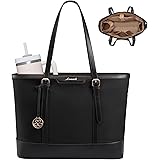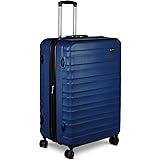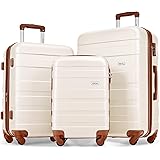Bulgaria, a land where ancient history whispers from Roman ruins and medieval fortresses, and vibrant culture thrives amidst stunning natural landscapes. From the sun-drenched Black Sea coast to the majestic peaks of the Rila and Pirin mountains, this Balkan gem offers an incredible array of experiences for every traveler.
If you’re dreaming of an adventure that combines rich heritage, breathtaking scenery, and incredible value, then 2026 is your year to discover Bulgaria. Get ready to explore charming villages, bustling cities, and serene monasteries, all while immersing yourself in a unique blend of Eastern European charm and warm hospitality.
This ultimate Bulgaria Travel Guide is crafted especially for first-timers, providing you with all the essential tips and insights to plan an unforgettable journey. Let’s dive in and unlock the secrets of this captivating country!
Table of Contents
- 1. Why Visit Bulgaria in 2026?
- 2. Best Time to Visit Bulgaria
- 3. Top Destinations in Bulgaria for First-Timers
- 4. Planning Your Bulgaria Trip: A Step-by-Step Guide
- 5. Accommodation in Bulgaria: Where to Stay
- 6. Getting Around Bulgaria: Transportation Guide
- 7. How Much Does a Trip to Bulgaria Cost?
- 8. Must-Try Foods and Cultural Delights
- 9. Staying Safe in Bulgaria
- 10. Solo Travel in Bulgaria
- 11. Traveling Bulgaria with Family or as a Senior
- 12. Digital Nomads in Bulgaria
- 13. Essential Packing List in our Bulgaria Travel Guide
- 14. FAQs for First-Timers
- 15. What’s Next? More Guides to Explore
1. Why Visit Bulgaria in 2026?
Bulgaria is truly a hidden gem in Eastern Europe, offering a travel experience that’s both enriching and incredibly affordable. In 2026, it continues to be one of Europe’s best-value destinations, allowing you to stretch your travel budget further without compromising on incredible experiences.
Beyond its affordability, Bulgaria boasts a diverse landscape that will leave you in awe. Imagine exploring ancient cities like Plovdiv, one of the oldest continuously inhabited cities in Europe, or hiking through the pristine wilderness of its national parks. The Black Sea coast beckons with golden beaches, while the Rhodope Mountains offer serene beauty and traditional villages.
The country’s rich history is palpable everywhere you go, from Thracian tombs to Roman amphitheaters and Ottoman mosques. Orthodox monasteries, like the iconic Rila Monastery, stand as testaments to centuries of spiritual and artistic heritage. Plus, the Bulgarian people are known for their genuine warmth and hospitality, making every interaction a memorable one.
In 2026, Bulgaria is also becoming increasingly accessible, with improved infrastructure and a growing number of direct flights. It’s the perfect time to visit before it becomes a mainstream tourist hotspot, allowing you to experience its authentic charm and discover its many wonders at your own pace.
A Glimpse into History and Culture
Bulgaria’s past is a tapestry woven with threads of ancient civilizations, empires, and spiritual traditions. You can wander through the ancient Roman Theater in Plovdiv, a city that breathes history, or explore the medieval fortress of Tsarevets in Veliko Tarnovo, the former capital.
The country’s cultural identity is deeply rooted in its Orthodox Christian heritage, evident in the numerous churches and monasteries adorned with intricate frescoes. Traditional music, dance, and crafts are still very much alive, offering visitors a chance to experience authentic Bulgarian traditions.
Nature’s Playground
For nature lovers, Bulgaria is an absolute paradise. The Rila and Pirin mountains offer spectacular hiking trails, alpine lakes, and opportunities for skiing in winter. The Central Balkan National Park is home to diverse wildlife and untouched forests.
Along the Black Sea coast, you’ll find a mix of lively resorts like Sunny Beach and charming, historic towns such as Sozopol and Nessebar. Whether you’re seeking adventure or relaxation, Bulgaria’s natural beauty provides the perfect backdrop.
Looking for the best hotel or flight deals?
Plan your trip with ease using the Expedia search tool below. From charming boutique hotels to luxury resorts, this widget helps you compare top options in seconds — flights included!
2. Best Time to Visit Bulgaria
Choosing the best time to visit Bulgaria depends largely on what you want to experience. Each season offers a unique charm, from sun-drenched beaches to snow-capped mountains.
Generally, the shoulder seasons (spring and autumn) are ideal for sightseeing and outdoor activities, offering pleasant weather and fewer crowds. Summer is perfect for beach holidays, while winter transforms the country into a snowy wonderland for ski enthusiasts.
Spring (April – May)
Spring in Bulgaria is beautiful, with blooming flowers and mild temperatures. It’s an excellent time for exploring cities, hiking in lower altitudes, and visiting cultural sites without the summer heat or crowds. Average temperatures range from 10°C to 20°C (50°F to 68°F).
Summer (June – August)
Summer is peak tourist season, especially along the Black Sea coast. Temperatures are warm, often reaching 25°C to 35°C (77°F to 95°F), making it perfect for swimming and sunbathing. Mountain regions offer cooler temperatures for hiking. Book accommodations and flights in advance during this period.
Autumn (September – October)
Autumn brings crisp air, vibrant fall foliage, and comfortable temperatures, similar to spring. It’s another fantastic time for cultural tours, wine tasting, and hiking. The crowds thin out, and prices for accommodation might be slightly lower. Expect temperatures between 10°C and 20°C (50°F to 68°F).
Winter (November – March)
Winter is perfect for skiing and snowboarding in resorts like Bansko, Borovets, and Pamporovo. Cities like Sofia and Plovdiv can be charming under a blanket of snow, though temperatures often drop below freezing. If you’re not into winter sports, be prepared for cold weather and shorter daylight hours.
3. Top Destinations in Bulgaria for First-Timers
For your first trip to Bulgaria, focusing on a few key destinations will allow you to experience the country’s diverse offerings without feeling rushed. Here are some must-visit places that perfectly blend history, culture, and natural beauty.
Sofia: The Vibrant Capital
Start your Bulgarian adventure in Sofia, the bustling capital. It’s a city where ancient history meets modern life. Explore the stunning Alexander Nevsky Cathedral, wander through the Roman Serdica complex, and enjoy the lively Vitosha Boulevard with its shops and cafes.
Don’t miss the Church of St. George Rotunda, one of the oldest buildings in Sofia, dating back to the 4th century. Sofia is also a great base for day trips to the Rila Monastery and Vitosha Mountain.
Plovdiv: Europe’s Oldest Continuously Inhabited City
Just a couple of hours from Sofia, Plovdiv is a true historical treasure. Its Old Town is a labyrinth of cobbled streets, colorful Revival-era houses, and ancient ruins. The Roman Amphitheater is a highlight, still used for performances today.
Explore the Kapana district, known for its artistic vibe, craft shops, and trendy cafes. Plovdiv’s unique blend of Thracian, Roman, Ottoman, and Bulgarian history makes it an absolutely fascinating place to visit.
Veliko Tarnovo: The City of Tsars
Perched on steep hills overlooking the Yantra River, Veliko Tarnovo is a picturesque city with a rich medieval past. Its main attraction is the Tsarevets Fortress, a powerful symbol of Bulgaria’s Second Empire. Walk through its gates and imagine life in a bygone era.
The charming old town, with its traditional houses and artisan workshops, is perfect for a leisurely stroll. Don’t miss the Sound and Light show at the fortress, a spectacular historical narration.
Rila Monastery: A Spiritual Masterpiece
Nestled deep in the Rila Mountains, the Rila Monastery is Bulgaria’s most famous and revered monastery, and a UNESCO World Heritage site. Its stunning architecture, vibrant frescoes, and serene atmosphere make it a must-visit. It’s easily accessible as a day trip from Sofia.
Nessebar: Ancient City on the Black Sea
Located on a picturesque peninsula on the Black Sea coast, Nessebar is another UNESCO World Heritage site. This ancient city boasts a rich history, with ruins from various civilizations and numerous old churches. Its narrow cobbled streets and traditional wooden houses create a unique atmosphere.
It’s a perfect blend of history and coastal charm, ideal for those looking to combine cultural exploration with a relaxing beach holiday.
4. Planning Your Bulgaria Trip: A Step-by-Step Guide
Planning an international trip can feel overwhelming, but with a clear roadmap, your Bulgarian adventure will be smooth and stress-free. Here’s a step-by-step guide to help you organize your unforgettable journey.
Step 1: Define Your Travel Style & Budget
Before anything else, decide what kind of trip you envision. Are you a budget backpacker, a luxury seeker, or somewhere in between? Your travel style will influence your accommodation, transportation, and activity choices. Having a clear budget in mind from the start is crucial.
Step 2: Research & Choose Your Destinations
Based on your interests (history, nature, beaches, cities), research the top destinations in Bulgaria. Use this guide and other resources to narrow down your list. Consider how much time you have and how much you want to move around.
Step 3: Book Flights & Accommodation
Once you have your dates and destinations, book your international flights to Sofia (SOF) or other major airports. Then, secure your accommodation. Booking in advance, especially for peak season, can save you money and ensure availability.
Step 4: Plan Your Itinerary & Activities
Create a rough itinerary, mapping out what you want to see and do each day. Be flexible! Don’t overschedule yourself. Research local tours, attractions, and unique experiences you’d like to include.
Step 5: Sort Out Visas & Travel Insurance
Check visa requirements for Bulgaria based on your nationality. While Bulgaria is part of the EU, it’s not yet fully in the Schengen Area, but it is expected to join for land borders in 2026. Always confirm the latest entry requirements. Travel insurance is non-negotiable for peace of mind.
Step 6: Pack Smart & Prepare for Departure
Create a packing list based on the season and your activities. Don’t forget essentials like travel adapters, medications, and comfortable walking shoes. Confirm all bookings, inform your bank of your travel plans, and learn a few basic Bulgarian phrases.
5. Accommodation in Bulgaria: Where to Stay
Bulgaria offers a wide range of accommodation options to suit every budget and travel style. From charming guesthouses to luxurious hotels, you’ll find plenty of choices across the country.


Hotels
You’ll find international hotel chains and local establishments in major cities like Sofia, Plovdiv, and Varna. These offer standard amenities and comfort. Prices vary significantly based on location, star rating, and season.
Guesthouses & Family Hotels
For a more authentic and often more affordable experience, consider staying in guesthouses or family-run hotels, especially in smaller towns and rural areas. These often provide a warm, personal touch and delicious homemade food.
Hostels
If you’re on a tight budget or traveling solo, hostels are a fantastic option. Sofia and Plovdiv have a good selection of highly-rated hostels, offering dorms and private rooms, plus opportunities to meet other travelers.
Apartments & Vacation Rentals
For longer stays, families, or groups, renting an apartment through platforms like Airbnb or Booking.com can be cost-effective and provide more space and amenities, including kitchens. This is particularly popular in cities and coastal areas.
Resorts (Black Sea & Ski)
Along the Black Sea coast, resorts like Sunny Beach and Golden Sands offer all-inclusive options and a lively atmosphere. For winter sports, ski resorts such as Bansko, Borovets, and Pamporovo provide a range of hotels and chalets right on the slopes.
6. Getting Around Bulgaria: Transportation Guide
Navigating Bulgaria is relatively straightforward, with various transportation options connecting its cities and regions. Your choice will depend on your budget, time, and desired level of flexibility.


Trains
Bulgaria has a railway network, though trains can be slower than buses. They offer a scenic way to travel between major cities like Sofia, Plovdiv, and Varna. For schedules and tickets, you can check the Bulgarian State Railways (BDZ) website or use platforms like Trainline for European connections.
Buses
Buses are generally the most efficient and popular way to travel between Bulgarian cities and towns. The network is extensive, and services are frequent and affordable. Major bus stations are usually located near city centers. Buy tickets at the station or sometimes directly from the driver.
Rental Cars
Renting a car offers the most flexibility, especially if you plan to explore rural areas, national parks, or off-the-beaten-path attractions. Roads are generally in good condition, but some rural roads can be challenging. An international driving permit is recommended if your license is not in Latin script.
Flights
For long distances, domestic flights are available between Sofia (SOF), Varna (VAR), and Burgas (BOJ). These are operated by Bulgaria Air and some low-cost carriers. While quicker, they might not always be the most cost-effective option compared to buses or trains for shorter distances.
Taxis & Ride-Sharing
Taxis are widely available in cities. Always use official taxis with meters and ensure the meter is running. Ride-sharing apps like Uber are not widely available in Bulgaria, but local alternatives like Yellow! Taxi (in Sofia) or other local apps might exist.
Ready to book your train tickets hassle-free? Search routes and compare prices on Omio – your one-stop platform for rail travel across Europe.
7. How Much Does a Trip to Bulgaria Cost?
One of Bulgaria’s biggest draws is its affordability, especially compared to Western European destinations. Your budget will vary based on your travel style, but here’s a general breakdown to help you plan.
Accommodation
- Hostels: €10-20 per night for a dorm bed.
- Mid-range Hotels/Guesthouses: €30-60 per night for a double room.
- Luxury Hotels: €80+ per night.
Food
- Street Food/Local Bakeries: €2-5 for a quick bite (e.g., banitsa).
- Casual Restaurants: €8-15 for a main meal.
- Fine Dining: €25+ per person.
- Groceries: Very affordable if you cook your own meals.
Transportation
- Local Public Transport: €0.80-1.60 for a single ticket in cities.
- Intercity Bus/Train: €10-25 for a journey between major cities.
- Car Rental: €20-40 per day, plus fuel.
Activities & Sightseeing
- Museum Entry: €3-8.
- Rila Monastery Day Trip: Around €25-40 for a shared tour.
- Ski Pass: €30-50 per day in peak season.
Daily Budget Estimates:
- Budget Traveler: €30-50 per day (hostels, street food, public transport, free activities).
- Mid-range Traveler: €60-100 per day (mid-range hotels, casual dining, some paid activities, occasional taxi).
- Luxury Traveler: €120+ per day (luxury hotels, fine dining, private transport, guided tours).
Remember, these are estimates, and prices can fluctuate. Always factor in a buffer for unexpected expenses.
8. Must-Try Foods and Cultural Delights
Bulgarian cuisine is a delicious blend of Balkan, Slavic, and Ottoman influences, rich in fresh vegetables, dairy products, and grilled meats. Prepare your taste buds for a delightful culinary journey!


Essential Bulgarian Dishes
- Banitsa: A traditional pastry made with whisked eggs and cheese (sirene) between layers of filo pastry. Perfect for breakfast or a snack.
- Shopska Salata: A refreshing salad with diced tomatoes, cucumbers, onions, peppers, and grated sirene cheese. A staple on every table.
- Kebapche & Kyufte: Grilled minced meat rolls (kebapche) and meatballs (kyufte), often served with fries and a side salad.
- Tarator: A cold cucumber soup with yogurt, garlic, walnuts, and dill. Incredibly refreshing in summer.
- Kavarma: A hearty stew made with meat (pork or chicken), vegetables, and spices, often baked in a traditional clay pot.
- Yogurt (Kiselo Mlyako): Bulgarian yogurt is famous worldwide for its unique bacterial strain (Lactobacillus bulgaricus). It’s incredibly creamy and healthy.
Drinks & Desserts
- Rakia: A strong fruit brandy, considered the national drink. Often homemade and served as an aperitif.
- Boza: A fermented malt drink with a thick consistency and sweet-sour taste. An acquired taste, but very traditional.
- Ayran: A refreshing yogurt drink, similar to a savory lassi.
- Baklava: A sweet pastry made of layers of filo filled with chopped nuts and sweetened with syrup or honey.
Cultural Etiquette & Tips
Bulgarians are generally warm and welcoming. A few cultural nuances to be aware of:
- Head Nods: A common point of confusion! In Bulgaria, nodding your head means “no” (yes), and shaking your head means “da” (no). It can be confusing at first, but you’ll get the hang of it!
- Hospitality: Bulgarians are generally very hospitable. If invited to a home, it’s customary to bring a small gift, like flowers or a bottle of wine.
- Language: Bulgarian is the official language, written in Cyrillic script. Learning a few basic phrases like “Zdravei” (Hello), “Blagodarya” (Thank you), and “Molya” (Please/You’re welcome) will go a long way.
9. Staying Safe in Bulgaria
Bulgaria is generally a safe country for tourists, but like any travel destination, it’s wise to be aware of common precautions to ensure a smooth and enjoyable trip.
General Safety Tips
- Petty Crime: Pickpocketing can occur in crowded tourist areas, public transport, and markets, especially in Sofia and major cities. Keep your valuables secure and be aware of your surroundings.
- Scams: Be wary of common tourist scams, such as overcharging by taxi drivers. Always agree on a price beforehand or ensure the meter is running.
- Emergency Numbers: The general emergency number in Bulgaria is 112 for police, ambulance, and fire services.
- Nightlife: If enjoying the nightlife, stick to reputable establishments and avoid walking alone in poorly lit areas late at night.
Health & Medical Care
- Travel Insurance: Always have comprehensive travel insurance that covers medical emergencies, trip cancellations, and lost luggage.
- Tap Water: Tap water is generally safe to drink in most urban areas, but bottled water is widely available and recommended for peace of mind, especially in rural areas.
- Pharmacies: Pharmacies (apteka) are common and well-stocked. Pharmacists can often provide advice for minor ailments.
Road Safety
- Driving: If driving, be aware that road conditions can vary, and local driving habits might be different from what you’re used to. Always adhere to speed limits and traffic laws.
- Pedestrians: Be cautious when crossing roads, as drivers may not always yield to pedestrians.
10. Solo Travel in Bulgaria
Bulgaria is an increasingly popular destination for solo travelers, offering a mix of adventure, culture, and affordability. It’s a great choice for those looking to explore independently.
Why Bulgaria is Great for Solo Travelers
- Affordability: Solo travel can be expensive, but Bulgaria’s budget-friendly prices make it accessible for individual explorers.
- Safety: Generally safe, with common-sense precautions.
- Ease of Navigation: Major cities are walkable, and public transport is efficient.
- Meeting People: Hostels are excellent for meeting fellow travelers. Local tours and cooking classes are also great ways to connect.
Tips for Solo Female Travelers
- Accommodation: Opt for well-reviewed hostels with female-only dorms or reputable hotels.
- Nightlife: Be cautious with drinks and avoid walking alone at night in unfamiliar areas.
- Trust Your Gut: If a situation feels off, remove yourself from it.
11. Traveling Bulgaria with Family or as a Senior
Bulgaria offers a welcoming environment for travelers of all ages, with options ranging from family-friendly resorts to serene cultural experiences for seniors.
Family Travel Tips
- Activities: Bulgaria has plenty to offer families, from beach holidays on the Black Sea to exploring ancient fortresses and national parks. Ski resorts are also great for family winter fun.
- Accommodation: Consider apartments or family-friendly hotels with amenities like pools and kids’ clubs.
- Food: Bulgarian cuisine is generally healthy and diverse, with options that appeal to children.
- Pace: Don’t try to cram too much into one day. Allow for downtime and flexibility in your itinerary.
Senior Travel Tips
- Accessibility: While major tourist sites are generally accessible, some older towns and historical sites may have uneven terrain or many stairs. Check accessibility in advance if needed.
- Pace: Plan a more relaxed itinerary with ample time for rest.
- Tours: Consider guided tours for convenience and expert insights, especially for historical sites.
- Health: Ensure all necessary medications are packed and consider travel insurance with good medical coverage.
12. Digital Nomads in Bulgaria
Bulgaria is rapidly gaining popularity among digital nomads, thanks to its low cost of living, fast internet, and vibrant cities. It offers an attractive blend of work-life balance and cultural immersion.
Why Bulgaria Appeals to Digital Nomads
- Low Cost of Living: Significantly more affordable than Western European countries, allowing your money to go further.
- Fast Internet: Reliable and high-speed internet is widely available in cities and even many smaller towns.
- Co-working Spaces: A growing number of co-working spaces, especially in Sofia and Plovdiv, offer excellent facilities and networking opportunities.
- Visa Options: While Bulgaria doesn’t have a specific digital nomad visa yet, EU citizens can reside freely. Non-EU citizens may need to explore long-stay visas or short-term options. Always check the latest regulations.
- Time Zone: Convenient for working with clients in Europe.
Best Cities for Digital Nomads
- Sofia: The capital offers the most co-working spaces, international community, and amenities.
- Plovdiv: A charming city with a relaxed pace, good internet, and a growing nomad scene.
- Bansko: Known for its thriving digital nomad community, especially popular during the ski season, with dedicated co-working and co-living options.
13. Essential Packing List in our Bulgaria Travel Guide
Packing smart can make a huge difference to your travel experience. Here’s a general packing list for your Bulgarian adventure, adaptable to the season of your visit.
Clothing
- Layers: Essential for varying temperatures, especially if traveling during shoulder seasons or exploring mountains.
- Comfortable Walking Shoes: You’ll be doing a lot of walking, especially in cities and historical sites.
- Swimsuit: If visiting the Black Sea coast in summer or staying at a hotel with a pool.
- Warm Jacket/Coat: Even in summer, evenings can be cool in the mountains. Essential for autumn, winter, and spring.
- Rain Gear: A compact umbrella or a light rain jacket is always a good idea.
Health & Toiletries
- Personal Medications: With copies of prescriptions if necessary.
- Basic First-Aid Kit: Band-aids, antiseptic wipes, pain relievers.
- Sunscreen & Hat: Especially for summer and mountain excursions.
- Insect Repellent: Useful in rural areas during warmer months.
Documents & Money
- Passport/Visa: Ensure they are valid for at least six months beyond your intended stay.
- Travel Insurance Documents: Keep digital and physical copies.
- Credit/Debit Cards: Inform your bank of your travel plans.
- Local Currency (Lev): Have some cash for smaller purchases, especially outside major cities.
- International Driving Permit: If you plan to rent a car.
Electronics & Miscellaneous
- Universal Travel Adapter: Bulgaria uses Type F (Schuko) and Type C plugs (two round pins).
- Portable Power Bank: For charging devices on the go.
- Camera & Chargers: To capture all the beautiful moments.
- Reusable Water Bottle: Stay hydrated and reduce plastic waste.
- Small Backpack/Daypack: For daily excursions.
As an Amazon Associate, we earn from qualifying purchases.
14. FAQs for First-Timers
Here are some frequently asked questions to help ease your mind before your first trip to Bulgaria.
Is Bulgaria safe for tourists?
Yes, Bulgaria is generally safe for tourists. Common sense precautions against petty crime, especially in crowded areas, are advisable. Major tourist areas are well-patrolled.
What currency is used in Bulgaria?
The official currency is the Bulgarian Lev (BGN). While Bulgaria is in the EU, it does not use the Euro. Euros can often be exchanged at banks and exchange offices.
Do I need a visa for Bulgaria in 2026?
Visa requirements depend on your nationality. EU citizens do not need a visa. For non-EU citizens, check the latest visa regulations based on your country of origin. Bulgaria is expected to fully join the Schengen Area for land borders in 2026, which might affect entry requirements for some nationalities.
What language is spoken in Bulgaria?
The official language is Bulgarian, which uses the Cyrillic alphabet. In tourist areas, especially Sofia and Plovdiv, many people, particularly younger generations, speak English. Learning a few basic Bulgarian phrases is always appreciated.
Is tap water safe to drink?
Tap water in most urban areas of Bulgaria is generally considered safe to drink. However, if you have a sensitive stomach or are in a rural area, bottled water is readily available and recommended.
What is the best way to get around Bulgaria?
Buses are the most efficient and affordable way to travel between cities. Trains are slower but scenic. Renting a car offers the most flexibility for exploring rural areas. Within cities, public transport (trams, buses, metro in Sofia) is good.
Is Bulgaria expensive?
No, Bulgaria is one of the most affordable countries in Europe, offering excellent value for money on accommodation, food, and activities compared to Western European destinations.
15. What’s Next? More Guides to Explore
Your Bulgarian adventure awaits! We hope this comprehensive guide has provided you with the inspiration and practical information needed to plan an unforgettable first trip to this captivating country.
Bulgaria is a land of contrasts, where ancient history meets stunning natural beauty, and vibrant culture blends with warm hospitality. From the bustling streets of Sofia to the ancient charm of Plovdiv, the spiritual serenity of Rila Monastery, and the sunny beaches of the Black Sea, there’s something for everyone.
Happy travels, and enjoy every moment of your Bulgarian journey!
🇪🇺 Western Europe Countries
- France Travel Guide
- Spain Travel Guide
- Portugal Travel Guide
- Netherlands Travel Guide
- Belgium Travel Guide
- Luxembourg Travel Guide
- Ireland Travel Guide
- England Travel Guide
🇪🇺 Southern Europe & Balkans Countries
- Italy Travel Guide
- Greece Travel Guide
- Croatia Travel Guide
- Montenegro Travel Guide
- Albania Travel Guide
- Malta Travel Guide
- Bosnia and Herzegovina Travel Guide
- Serbia Travel Guide
- North Macedonia Travel Guide
- Kosovo Travel Guide
🇪🇺 Northern Europe & Nordics Countries
- Sweden Travel Guide
- Norway Travel Guide
- Finland Travel Guide
- Denmark Travel Guide
- Iceland Travel Guide
- Scotland Travel Guide
🇪🇺 Central Europe Countries
- Germany Travel Guide
- Austria Travel Guide
- Switzerland Travel Guide
- Poland Travel Guide
- Czechia Travel Guide
- Hungary Travel Guide
- Slovakia Travel Guide
- Slovenia Travel Guide
🇪🇺 Eastern Europe & Baltics Countries
- Romania Travel Guide
- Bulgaria Travel Guide
- Ukraine Travel Guide
- Moldova Travel Guide
- Lithuania Travel Guide
- Latvia Travel Guide
- Estonia Travel Guide
- Belarus Travel Guide







